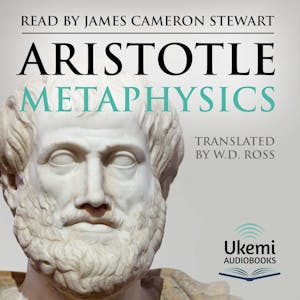Aristotle's Metaphysics was the first major study of the subject of metaphysics - in other words, an inquiry into 'first philosophy', or 'wisdom'. It differs from Physics, which is concerned with the natural world: things which are subject to the laws of nature, things that move and change, are measurable. In Metaphysics, the study falls on 'being qua being' - being insofar as it is being; the causes and principles of being, the causes and principles of substances. Aristotle asks, what is existence? How can things continue to exist yet change, and how can we best understand the world we live in?
The work as it has come down to us is a compilation of Aristotle's writing on the subject made in Alexandria in the first century CE, and it proved enormously influential from the Greeks onward, through the medieval and Renaissance periods. In Metaphysics, Aristotle absorbed Plato's view that nature is eternal and unchangeable while accepting that we live in a world that appears full of change. A challenging work, Metaphysics is divided into 14 books. It begins with the causes of things and questions the existence of God, the understanding of 'being' and the concept of 'substance'. It proceeds to consider 'actuality', 'potentiality' and 'unity'.
This first recording, using the clear translation by W. D. Ross, is presented in a measured and comprehensible manner by James Cameron Stewart.
